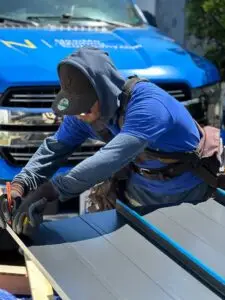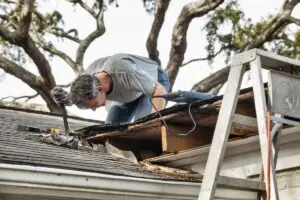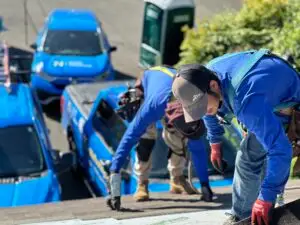Do you? If not, Where does that leave you?
How does understanding the laws and regulations that govern the roofing industry in Seattle city benefit you as a worker in the field or even as a business?
From the what to the how of getting licenses and certificates, to guidelines on how to treat your customers. If your goal is to be a well-sought-out pro contractor in Seattle, you need to know these.
Seattle Roofing Company Certifications
Across all cities in Washington State including Seattle, all contractors who do construction work valued at $500 or more must register with the Department of Labor and Industries (L&I). That is one law that a Seattle roofing company must follow as it is a legal requirement and must be renewed every year. For a local roofing company or any contractor for that matter to get this contractor registration, they will need to meet specific criteria. They need to have a valid Unified Business Identifier (UBI) number and proof of industrial insurance coverage, and they will basically have to pass a contractor registration exam.
That covers that, although, some types of roofing work may call for specialized licenses or certifications. For example, let’s say the materials you’re dealing with contain asbestos. You definitely need to get an Asbestos Certification from L&I.
In the same way, working with different types of roofing materials or systems will need some specific manufacturer certifications or training.
If a company offers Seattle roofing repair services without first meeting these contractor registration and licensing requirements, they can be penalized. Think fines, stop-work orders, and even criminal charges.
Building Codes and Permit Requirements
Seattle works with the International Building Code (IBC) and the International Residential Code (IRC), along with other local amendments. What do these codes do? They set the minimum standards for construction companies like those offering Seattle roofing services.
This concerns a lot of companies offering residential roofing services. Everything from the construction to alteration, and maintenance of buildings, including roofing systems has to follow the guidelines.
Seattle roofing companies have to make sure that their work complies with these codes, as well as any other local regulations.
Companies that work without the required permits or don’t comply with building codes can get fines, stop-work orders, and even the removal or demolition of non-compliant work at the contractor’s expense.
In most cases, before any roofing work, the best roofing companies in Seattle get the necessary permits from the Seattle Department of Construction and Inspections (SDCI).
You will find that permits are needed to install a new roof. Not just that, even re-roofing projects, and specific types of roof repairs need permits.
This permit application process typically goes by submitting the plans, specifications, and other documentation for review by SDCI inspectors.
Safety and OSHA Regulations
Roofing is considered one of the most dangerous occupations in the construction industry. As such, roofing companies in Seattle must keep to safety regulations set by the Occupational Safety and Health Administration (OSHA) and the Washington Industrial Safety and Health Act (WISHA).
These regulations cover fall protection, ladder and scaffolding requirements, personal protective equipment (PPE), hazard communication, and more. The best roofing companies provide proper training, equipment, and supervision so that their workers are safe.
Environmental Regulations
This is another serious one especially because it involves the removal or disposal of hazardous materials. Seattle roofing companies follow various environmental regulations to protect public health and keep the environment safe.
One key regulatory body is the National Emission Standards for Hazardous Air Pollutants (NESHAP). They oversee the handling and disposal of asbestos-containing materials. Roofing companies have to follow the procedures for identifying, removing, and disposing of asbestos-containing materials to stop asbestos fibers from getting into the air.
Consumer Protection Laws
Consumer protection laws are there to protect the rights of homeowners and businesses. One of the most important laws in this field is the Washington State Consumer Protection Act (CPA).
It does not allow unfair or deceptive business practices, like misrepresenting the quality or pricing of services. Some malicious companies go as far as failing to disclose material facts or engaging in bait-and-switch tactics. That kind of violation can lead to civil penalties, lawsuits, and even criminal charges in severe cases. Even dissatisfied customers can file complaints with the Washington State Attorney General’s Office or the Better Business Bureau. That does a lot of damage to a company’s reputation and credibility.
That is why companies provide clear and accurate information to their customers, including detailed written contracts, warranties, and pricing breakdowns.
It’s not hard to see that working in the roofing industry in Seattle takes more than just having technical expertise. The contractors need to have a comprehensive understanding of the laws and regulations that govern their industry. It tells of the quality of your professional service when you ensure your roofing company operates legally and ethically. That earns you the customer’s respect and trust. A good Seattle roofing company will do its best to stay informed and up-to-date on the latest regulations. They can even go as far as getting professional guidance when necessary. This strong foundation for a roofing contractor is key to success.






